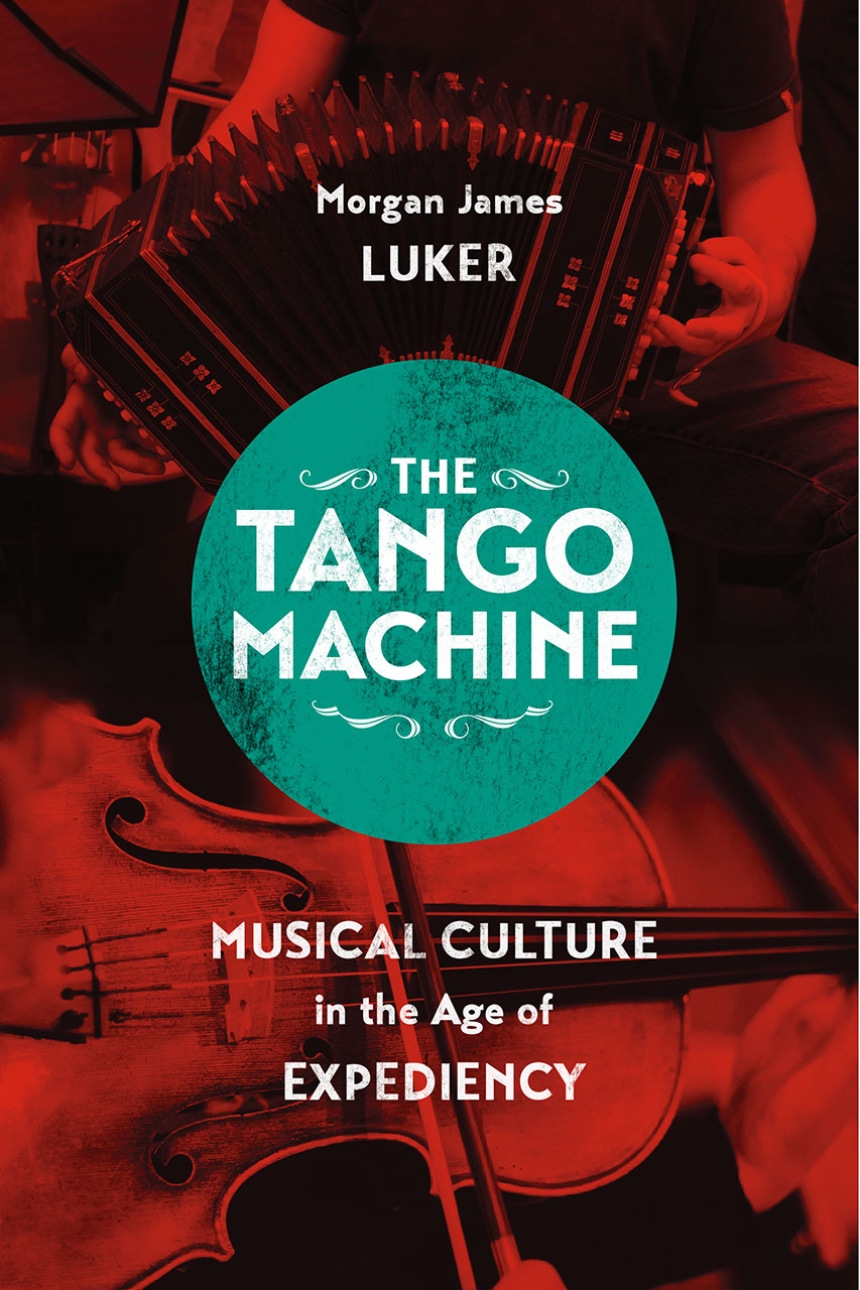The Tango Machine
Musical Culture in the Age of Expediency
9780226385549
9780226385402
9780226385686
The Tango Machine
Musical Culture in the Age of Expediency
In Argentina, tango isn’t just the national music—it’s a national brand. But ask any contemporary Argentine if they ever really listen to it and chances are the answer is no: tango hasn’t been popular for more than fifty years. In this book, Morgan James Luker explores that odd paradox by tracing the many ways Argentina draws upon tango as a resource for a wide array of economic, social, and cultural—that is to say, non-musical—projects. In doing so, he illuminates new facets of all musical culture in an age of expediency when the value and meaning of the arts is less about the arts themselves and more about how they can be used.
Luker traces the diverse and often contradictory ways tango is used in Argentina in activities ranging from state cultural policy-making to its export abroad as a cultural emblem, from the expanding nonprofit arts sector to tango-themed urban renewal projects. He shows how projects such as these are not peripheral to an otherwise “real” tango—they are the absolutely central means by which the values of this musical culture are cultivated. By richly detailing the interdependence of aesthetic value and the regimes of cultural management, this book sheds light on core conceptual challenges facing critical music scholarship today.
Luker traces the diverse and often contradictory ways tango is used in Argentina in activities ranging from state cultural policy-making to its export abroad as a cultural emblem, from the expanding nonprofit arts sector to tango-themed urban renewal projects. He shows how projects such as these are not peripheral to an otherwise “real” tango—they are the absolutely central means by which the values of this musical culture are cultivated. By richly detailing the interdependence of aesthetic value and the regimes of cultural management, this book sheds light on core conceptual challenges facing critical music scholarship today.
216 pages | 3 line drawings | 6 x 9 | © 2016
Chicago Studies in Ethnomusicology
Anthropology: Cultural and Social Anthropology
Music: Ethnomusicology
Reviews
Table of Contents
Acknowledgments
Introduction: On the Values of Music in Expedient Argentina
1 Expedient Soundings: The Genre Culture of Contemporary Tango Music
2 Contemporary Tango and the Cultural Politics of música popular
3 Tango among the Nonprofit Arts
4 Tango as Part of the Intangible Cultural Heritage of Humanity
5 “This Is Going to Be Good for All of Us”: Tango and the Cultural Industries
Conclusion: He Sings Better Every Day: Musical Culture in the Age of Expediency
Notes
Bibliography
Index
Introduction: On the Values of Music in Expedient Argentina
1 Expedient Soundings: The Genre Culture of Contemporary Tango Music
2 Contemporary Tango and the Cultural Politics of música popular
3 Tango among the Nonprofit Arts
4 Tango as Part of the Intangible Cultural Heritage of Humanity
5 “This Is Going to Be Good for All of Us”: Tango and the Cultural Industries
Conclusion: He Sings Better Every Day: Musical Culture in the Age of Expediency
Notes
Bibliography
Index
